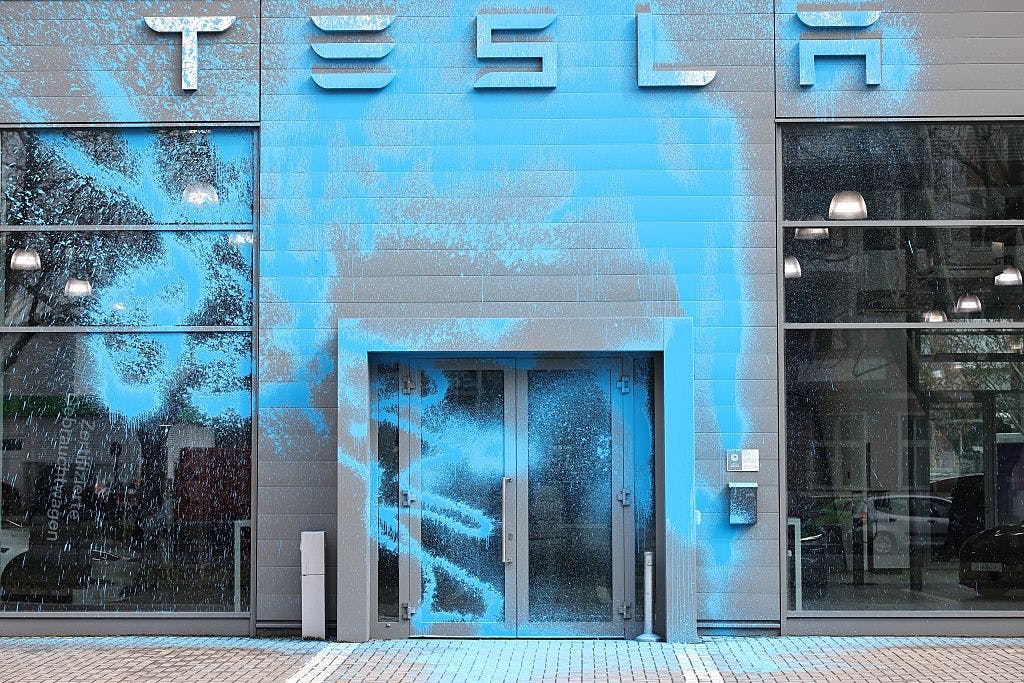“Unprecedented brand damage” and the many problems weighing on Tesla’s stock
Elon Musk’s end date at DOGE and Tesla’s tariff resistance aren’t enough to keep the stock from falling.
Tesla’s stock is falling again today after it dropped more than 5% yesterday — and there are plenty of factors bringing it down.
This morning, JPMorgan Chase analyst Ryan Brinkman wrote that Tesla’s Q1 delivery miss confirmed the “unprecedented brand damage we had earlier feared.” He added that it “causes us to think that — if anything — we may have underestimated the degree of consumer reaction.”
Shares were recently down 4% in premarket trading.
Earlier this week, Tesla reported that it sold 50,000 fewer vehicles than it had a year earlier and than analysts had expected, a record miss on both counts. That suggests Tesla’s plummeting public perception and nationwide protests, thanks in part to CEO Elon Musk’s work at the Department of Government Efficiency, are effectively weighing on its top line.
Soon after the dismal delivery report, the stock rallied on a report Musk might be leaving his position at DOGE and would presumably spend more time running his electric vehicle company. But even confirmation of that news yesterday doesn’t seem to be helping Tesla’s stock.
Of course, now there’s a tariff-driven global rout roiling the markets, so that’s obviously an issue, but Mexico and Canada, where many of its parts are made, are so far exempt from the latest “reciprocal tariffs.”
The auto tariffs that went into effect yesterday shouldn’t affect Tesla as much as other carmakers, since it assembles its US-sold vehicles in the US. (Tesla is definitely not immune, though, and tariffs on its parts, many of which are made in Canada and Mexico, will begin in May.)
But at least some of Tesla’s many other issues — increased competition, an aging lineup, delayed technology rollouts — seem to be affecting it, too.
